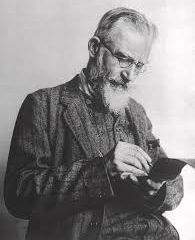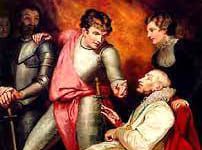Bernard Shaw | Pygmalion As A Social Critique
Or
Man-woman Relationship in Bernard Shaw’s play ‘Pygmalion’
Bernard Shaw | Pygmalion As A Social Critique
Bernard Shaw | Pygmalion As A Social Critique
George Bernard Shaw (1856- 1950) is the originator of a new genre of drama termed the ‘Drama of Problem’ or ‘Drama of Ideas’. In this genre of drama, he has made a critical assessment of some existing social problems or problem-faced social ideas, conventions, customs or social follies and vices to make his readers aware of these problems and to think of solutions to these problems.
His play entitled ‘Pygmalion’ is such a problem play where he has made a thorough critical assessment of the man-woman relationship, their attitude towards the opposite sex and class struggle between the middle class and lower middle class concerning their economic and social status. Let us illustrate these through the analysis of the theme and his major characters as below:
First, the dramatist Shaw criticized the age-long reserved outlook of men towards women through the depiction of relationships through Higgins the professor of phonetics and Eliza Doolittle the flower girl. Though Higgins undertakes Eliza to raise her to the position of a duchess by teaching her fashionable English, he cannot raise her status. He uses her as a tool to carry out his experiment on phonetics. When the experiment is over she is of no value to him. He says:
You have had a thousand times as much out of me as I have out of you.
Secondly, the dramatist has brought about his Theory of Life-force through Eliza and Higgins, which criticizes their attitude towards marriage. According to Shaw’s philosophy – Life-force works in two ways: first, in a woman, life force instigates her to multiply life by producing children. Man succumbs to her romantic charm and sex- appeal. On the other hand, there are certain rare men of genius who do not succumb to the wills of women. The purpose of the life force is not to multiply life but to raise life to a higher level. To them a woman is nothing, but a tool to make life higher. This theory of life force holds good to Eliza- Higgins relationship. Eliza is a positive victim of life force and hence, she falls in love with Freddy. She declares:
‘I want little kindness. I know I’m a common ignorant girl……but I am not dirt under your feet.’
Again she says:
‘Freddy…..he’d make me happier than my betters that bully me and don’t want me.’
On the other hand, Higgins is a victim of the Oedipus complex. His ideal woman is none but his mother. He says:
Oh, I cannot be bothered with young women. My idea of a lovable woman is somebody as like you as possible.
Thirdly, the dramatist has made a critical assessment of the social and economic status of the lower middle class. The families like that of the Doolittle’s are the victims of poverty and social status. They cannot by any way rise up to the fashionable middle-class life- status. Eliza and her father Mr. Doolittle serve as the best examples in this respect. Higgins by giving the lessons on phonetics fits her into the middle class, but he is blind to provide her with the status and environment of the middle class. Thus she loses her identity in a middle-class fashionable society. She regrets:
”I sold flowers. I did not sell myself. Now you’ve made a lady of me. I am not fit to sell anything else. I wish you had left me where you found me.”
Thus her father Mr. Doolittle also becomes the victim of middle-class morality. When he owned a huge amount of money as a legacy from his relatives, he was pressed to rise up to middle-class morality. But it caused him to lose his identity. He says:
”I have to live for others and not for myself: that’s middle-class morality……. I’ll have to learn to speak middle-class language from you, instead of speaking proper English.”
Thus the dramatist George Bernard Shaw has brought about a critical assessment of some social problems through the relationship among his major characters, but he has put forward no specific solutions to the problems; he leaves the solutions to be thought out by his readers.0 0 0
Bernard Shaw | Pygmalion As A Social Critique
Read More: Renaissance Elements in Doctor Faustus
Bernard Shaw | Pygmalion As A Social Critique
N. B. This article entitled ‘Bernard Shaw | Pygmalion As A Social Critique’ originally belongs to the book ‘World Drama Criticism‘ by Menonim Menonimus. Bernard Shaw | Pygmalion As A Social Critique
Related Searches:
- Pygmalion Summary
- Bernard Shaw’s Pygmalion Critique
- Analysis of Bernard Shaw’s Pygmalion
- A Summary and Analysis of Bernard Shaw’s Pygmalion
Books of Literary Criticism by M. Menonimus:
- World Short Story Criticism
- World Poetry Criticism
- World Drama Criticism
- World Novel Criticism
- World Essay Criticism
- Indian English Poetry Criticism
- Indian English Poets and Poetry Chief Features
- Emily Dickinson’s Poetry-A Thematic Study
- Walt Whitman’s Poetry-A Thematic Study
- Critical Essays on English Poetry
- Tawfiq al-Hakim’s Novel: Return of the Spirit-An Analytical Study
- Tawfiq al-Hakim’s Novel: ‘Yawmiyyat Naib Fil Arayaf’-An Analytical Study
- Analytical Studies of Some Arabic Short Stories
- A Brief History of Arabic Literature: Pre-Islamic Period …











